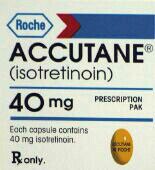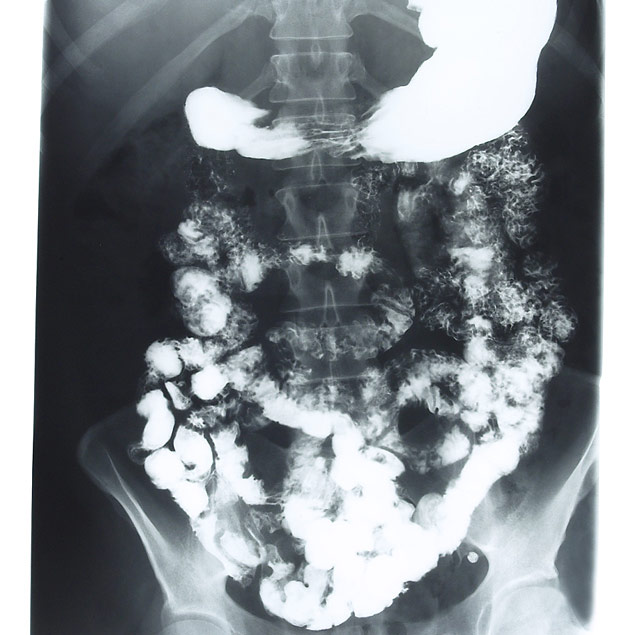
WEDNESDAY, Feb. 20 (HealthDay News) — A new study counters the notion that the prescription acne drug Accutane raises the risk of Crohn’s disease or colitis in women.
The study of more than 45,000 women found no such link between Accutane (isotretinoin) use and these illnesses, which are collectively known as inflammatory bowel disease (IBD).
One expert not connected to the study called it a “welcome review.”
“There has been a lot of speculation and even litigation that Accutane causes inflammatory bowel disease,” said Dr. Michele Green, a dermatologist at Lenox Hill Hospital in New York City.
“Dermatologists have been discouraged from using Accutane and the makers of Accutane have discontinued their production due to countless lawsuits,” she noted, but “this study once again highlights the safety of Accutane.”
Ulcerative colitis and Crohn’s disease are the most common forms of IBD, a group of disorders in which the intestines become inflamed. Symptoms include abdominal pain, diarrhea, loss of appetite, unexplained weight loss, bleeding from the rectum, fever, joint pain and skin problems.
In this study, published in the February issue of JAMA Dermatology, researchers compared almost 2,200 women of reproductive age who had IBD against another group of more than 43,000 women without IBD.
Only 10 (0.46 percent) of the IBD patients and 191 (0.44 percent) of those in the control group had used Accutane — so there was essentially no difference.
The findings “do not suggest an increase in risk” for IBD among those who use Accutane, concluded Mahyar Etminan, of the University of British Columbia in Canada, and colleagues.
Severe acne can cause serious emotional distress for children and teens. The study results show that concerns about IBD should not prevent doctors should not prevent from prescribing Accutane to these patients, the researchers concluded in a journal news release.
Green agreed. “Unfortunately, Accutane has already been demonized and patients are less likely to receive this drug because of the undeserved negative reputation,” she said.
Another dermatology expert said there’s just no firm evidence to link Accutane and bowel disorders.
“This is the third study published evaluating the association between isotretinoin and inflammatory disease. The two previous studies showed conflicting results,” said Dr. Joshua Zeichner, an assistant professor of dermatology at the Icahn School of Medicine at Mount Sinai, in New York City.
According to Zeichner, “One [prior study] showed no association and the other showed a small association between isotretinoin [Accutane] and ulcerative colitis only. This study looks specifically at adult women and does not show an association between the drug and inflammatory bowel disease.”
Overall, he said, “the data from these three studies are not sufficient to prove a causal relationship between isotretinoin use and inflammatory bowel disease.” He said the existence of any link between acne and IBD is also far from proven.
However, Accutane is not suitable for use by certain patients, especially among women of childbearing age, since its use has been linked to a higher incidence of birth defects, Zeichner noted.
“A woman who is pregnant, breast-feeding or not compliant with using two forms of birth control are not candidates,” for using the acne drug, said Zeichner, who is also director of Cosmetic & Clinical Research at the Mount Sinai Medical Center.
He added that people with a history of severe depression are also advised to stay away from Accutane, as are people with liver disease or high cholesterol.
More information
The U.S. Office on Women’s Health has more about inflammatory bowel disease.

